Scroll for prep

Please wait…
This video is having trouble loading. You may have lost your Internet connection.
Step 1: Click to Reload this page
Step 2: Click to
Try our other video player
Step 3: Contact your teacher if trouble persists.
Or,
dismiss this message.
Watch, then discuss. What kind of plant do you think this is?

This is a type of cactus. It is called a saguaro cactus. Saguaro is pronounced
Sa - WAH - ro. The “g” is silent. Look at how tall it is compared to the child on the
right!
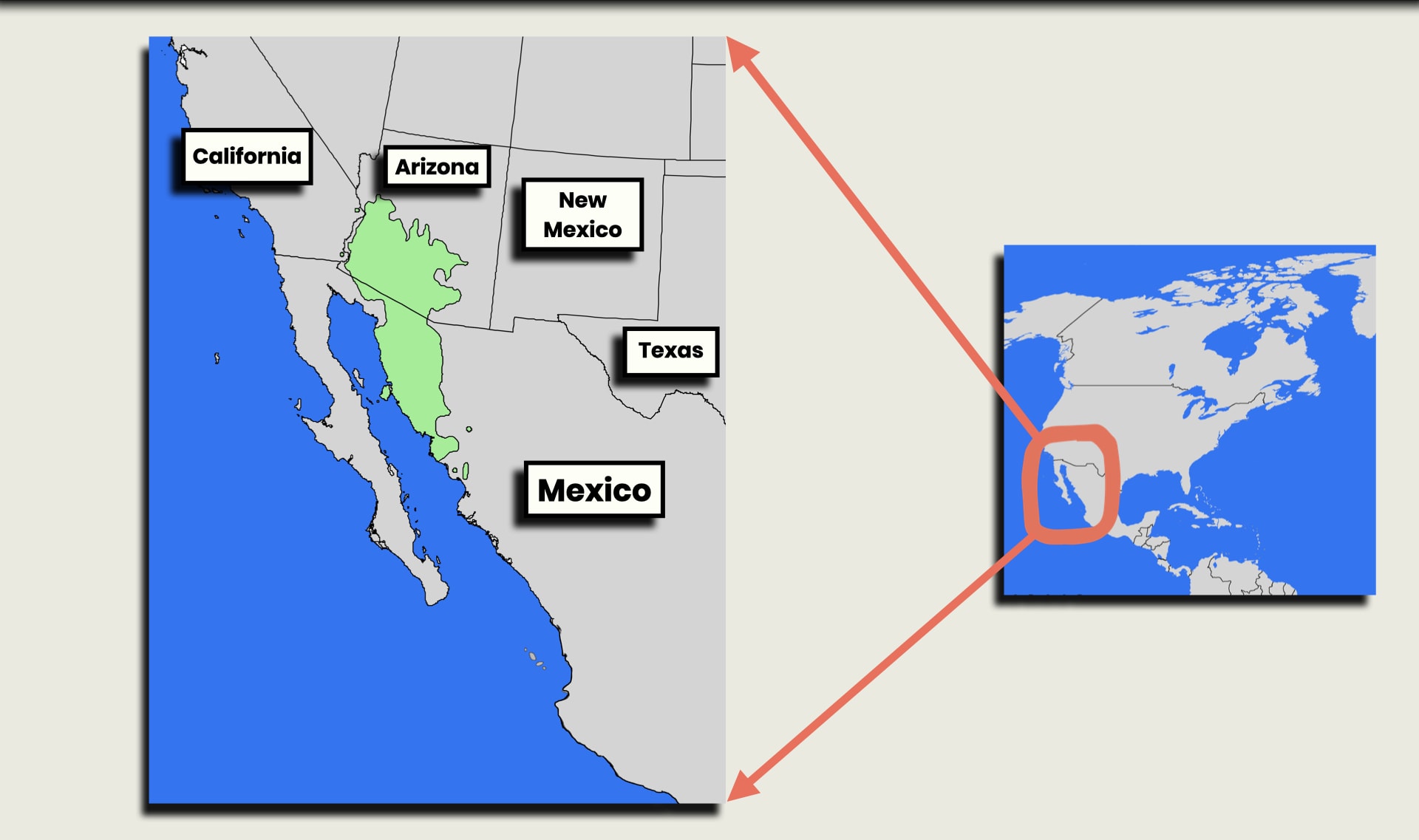
Saguaros only grow naturally in the green area on this map. Look at this map, then
discuss. Where do saguaros grow?
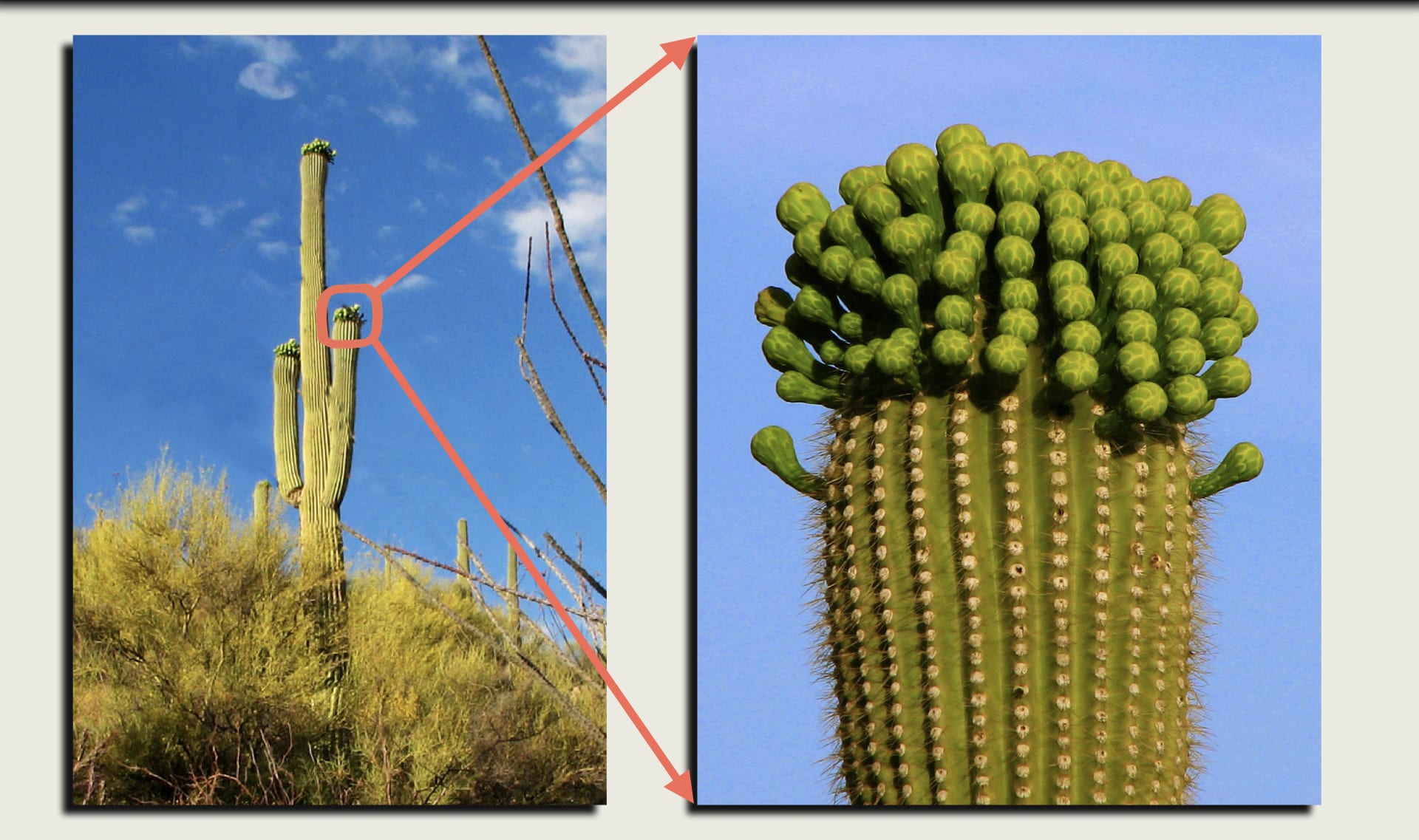
Every year in the spring, something amazing happens. These green things start to
grow out of the saguaros. Discuss. What do you think these things are?

Every spring, the saguaros grow flowers! Some of these flowers here have
bloomed. After a few months, the flowers will be gone. But more flowers will be
back next spring. This happens again and again, every year.
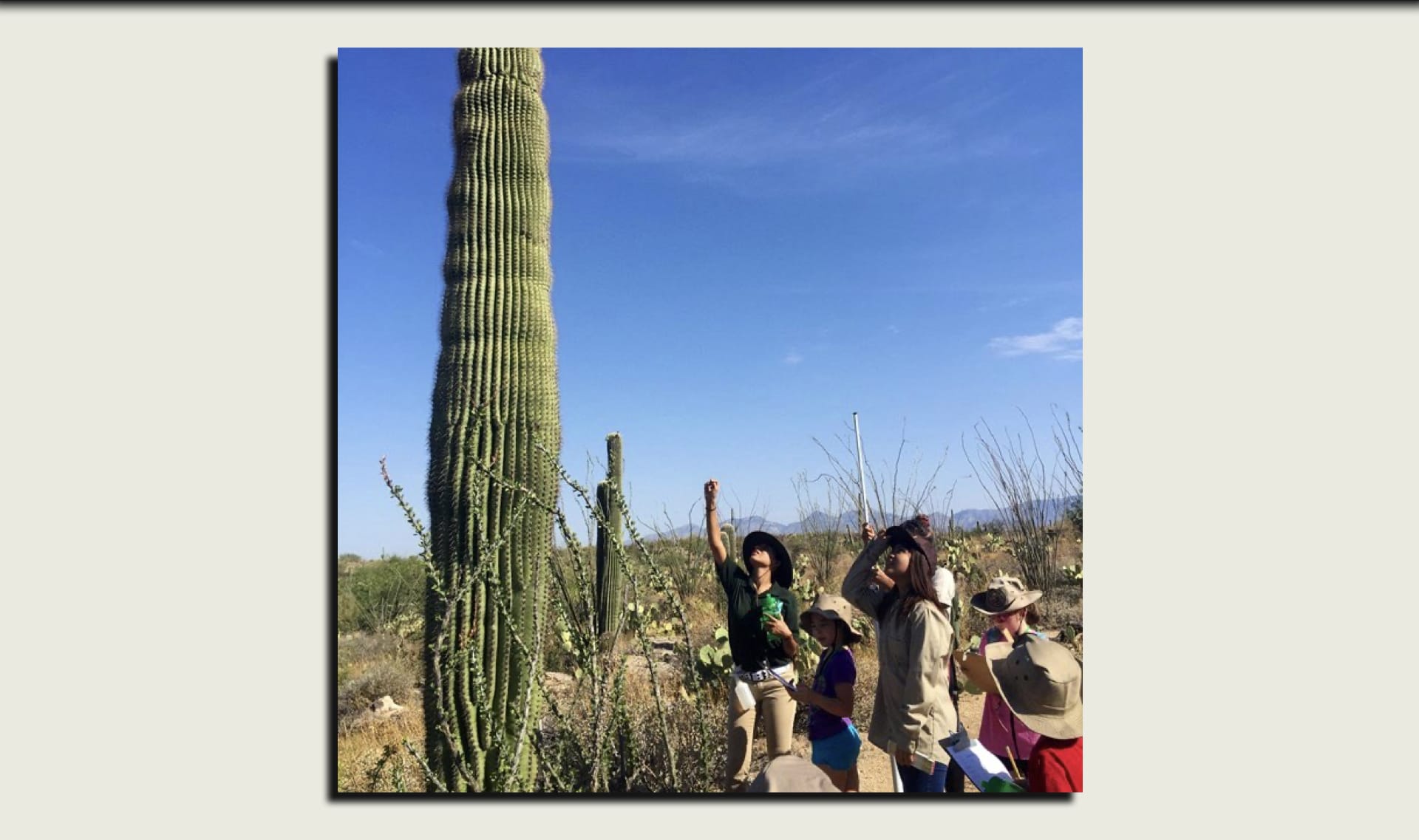
Every year, people travel from far away to see the saguaro flowers. But people
aren’t the only living things that visit the flowers…

Please wait…
This video is having trouble loading. You may have lost your Internet connection.
Step 1: Click to Reload this page
Step 2: Click to
Try our other video player
Step 3: Contact your teacher if trouble persists.
Or,
dismiss this message.
Scientists wanted to watch the saguaros at night. They shined a light on one and
watched closely. Watch, then discuss. Which kind of animal do you think this is?
What do you think it is doing?
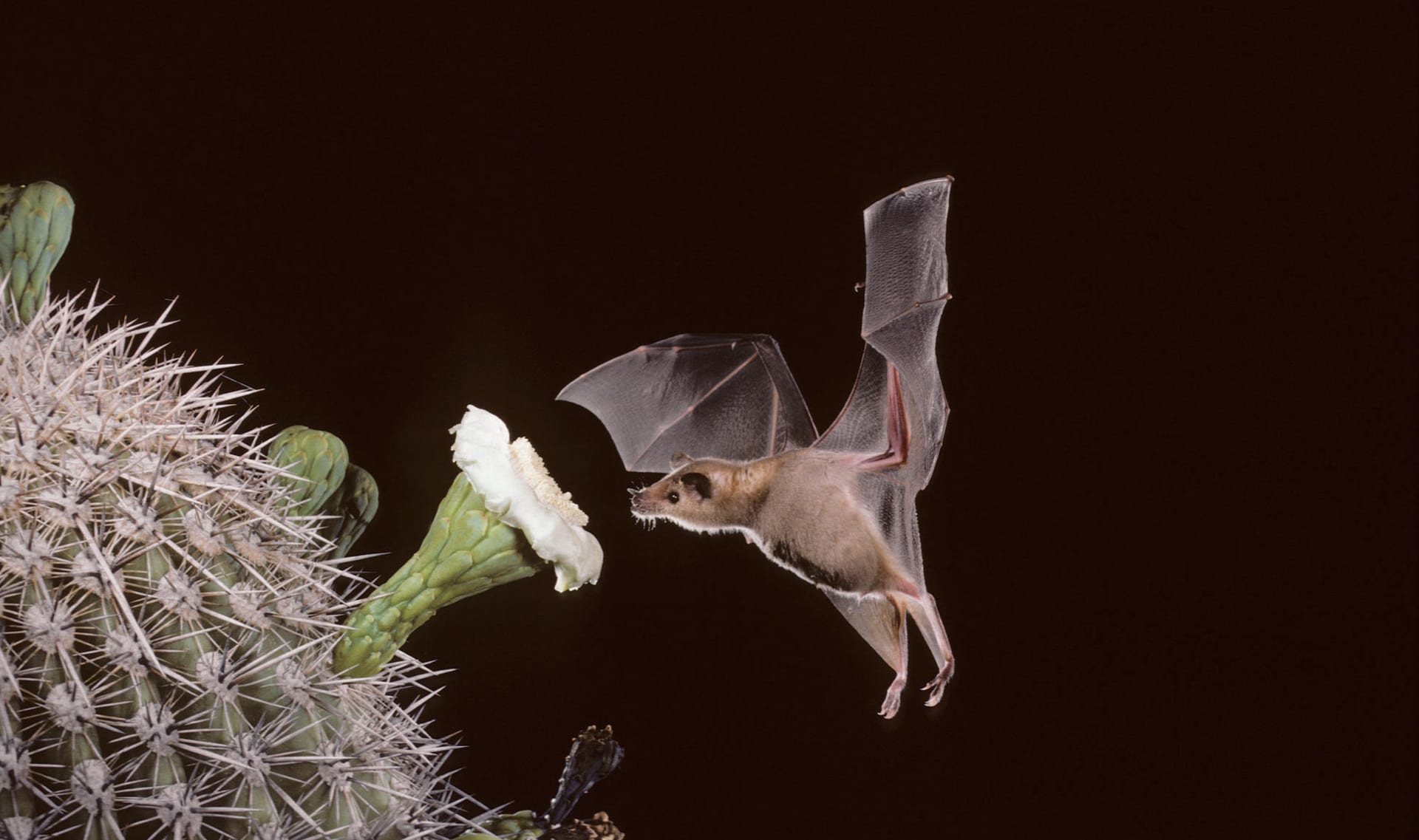
These are bats! These bats sleep in dark places, such as caves, during the day. But
at night, they fly out and stick their heads into saguaro flowers. It is such a
strange thing to do. Let’s see if you can figure out what is going on here.
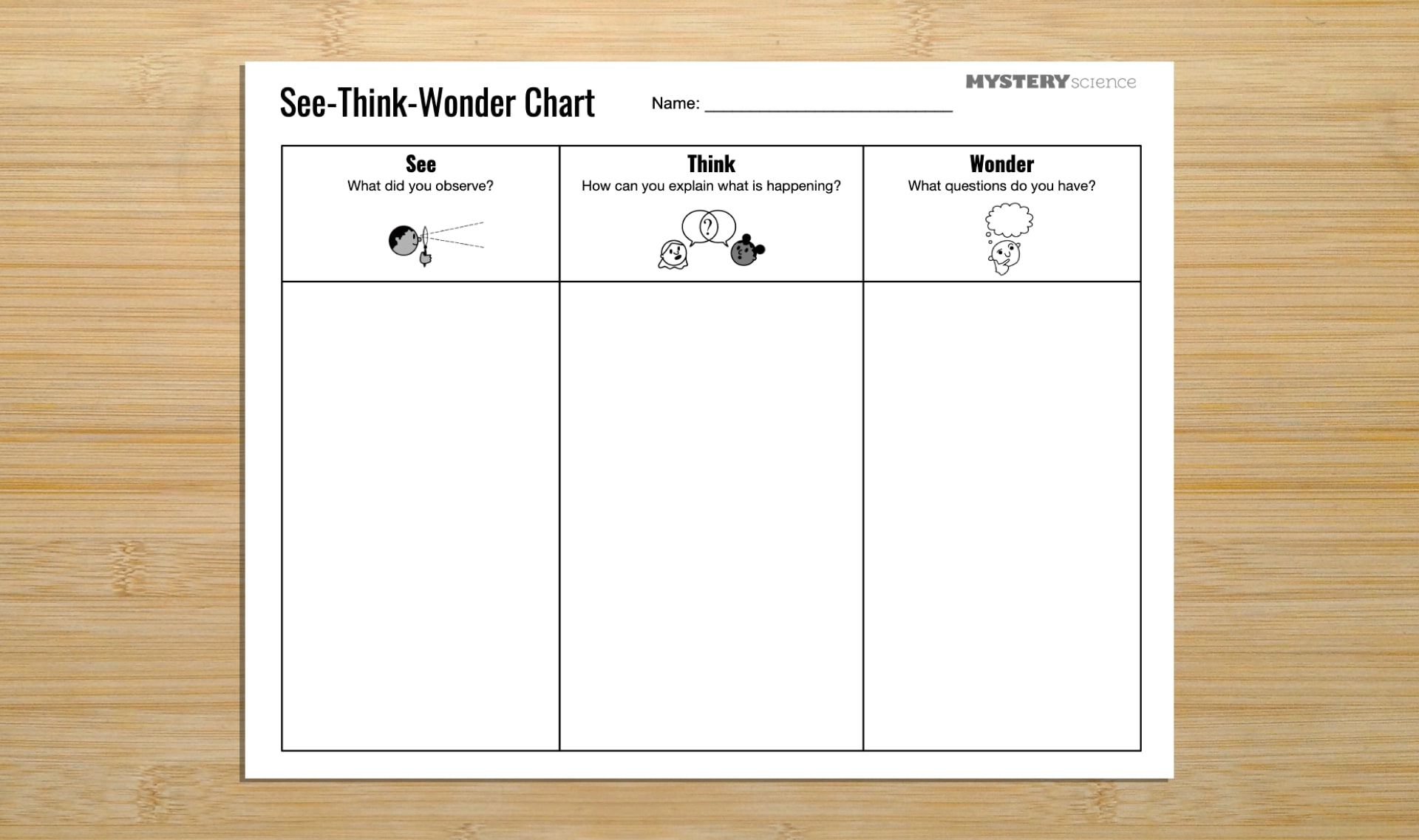
Get a See-Think-Wonder Chart, or make your own with a large sheet of paper.
Your teacher will add your ideas to the class chart.
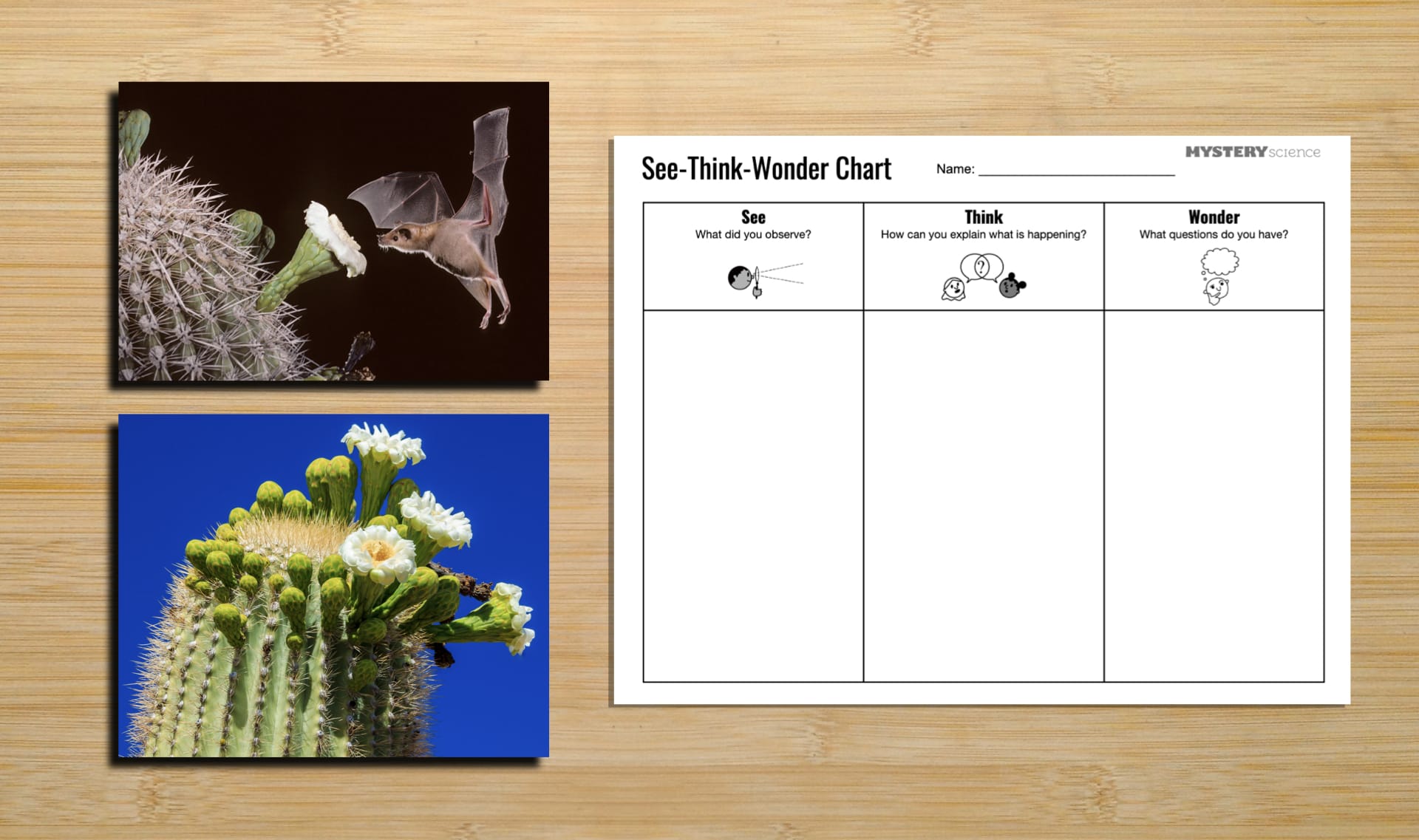
Discuss. What did you see on the saguaros? What did you see the bats doing?
Record your answers in the See column of your chart.
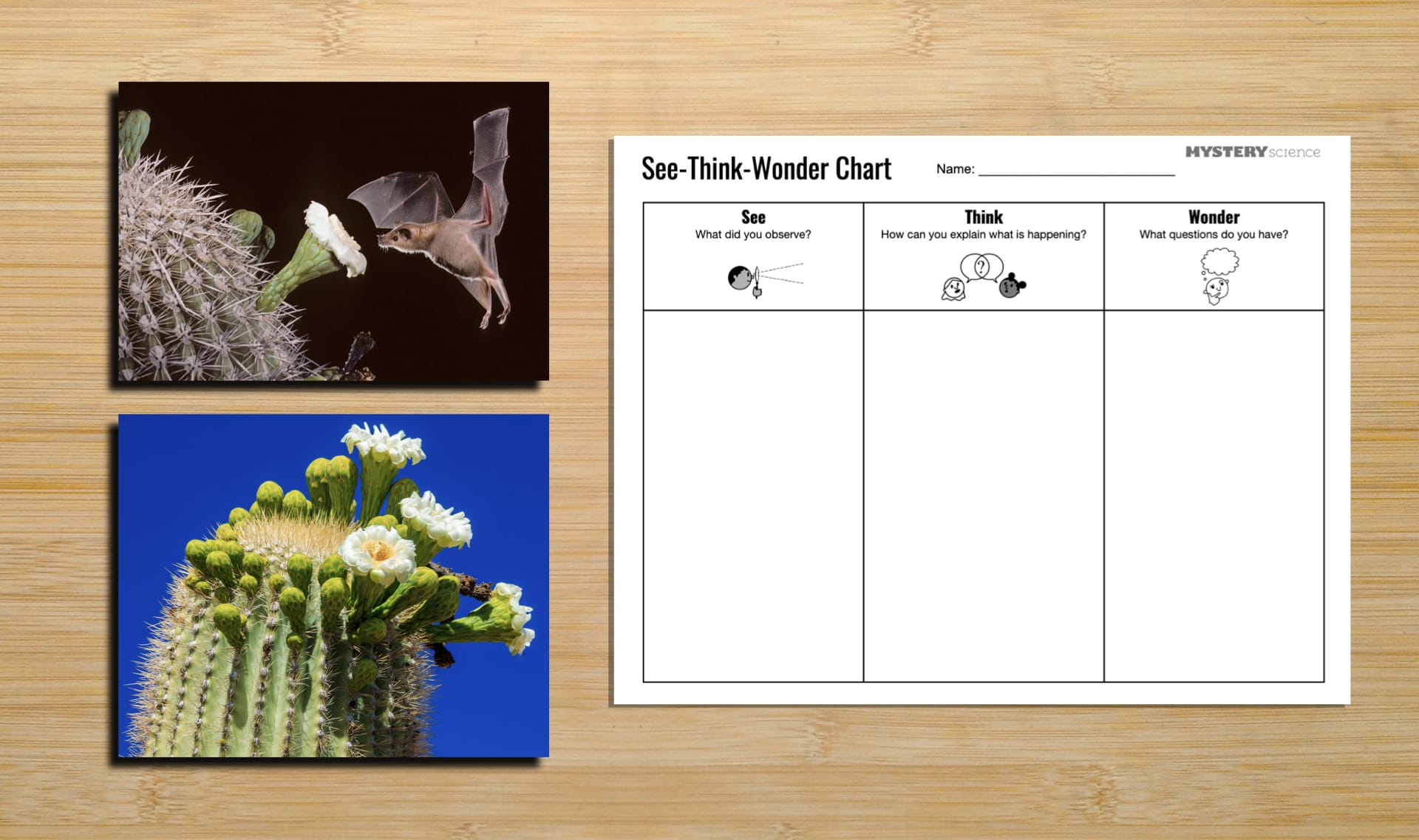
Why do you think the bats do these things? Why do you think the saguaros grow
flowers? Come up with as many ideas as you can. Record your answers in the
Think column of your chart.
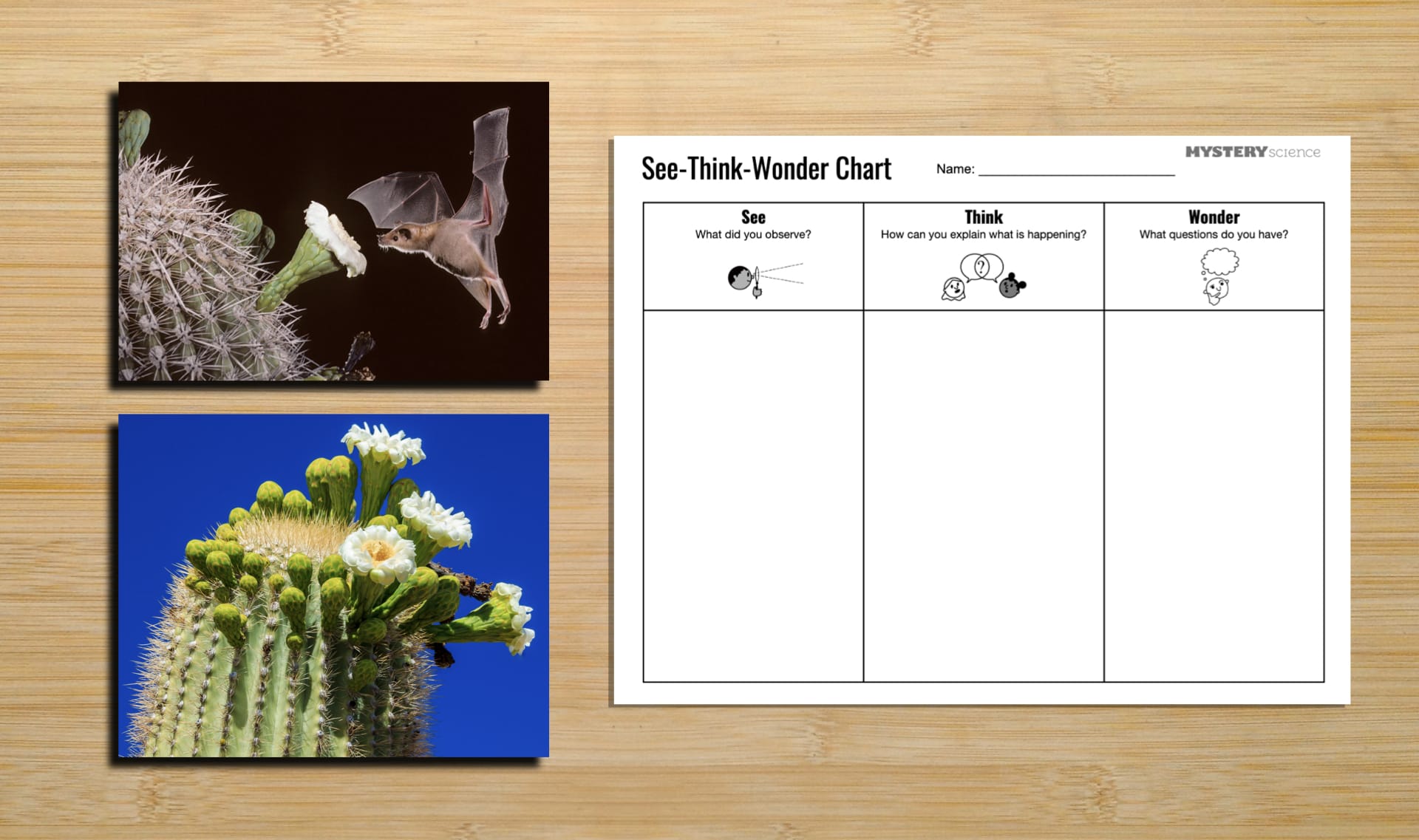
What do you wonder about the bats and the saguaros? Record your questions
in the Wonder column.
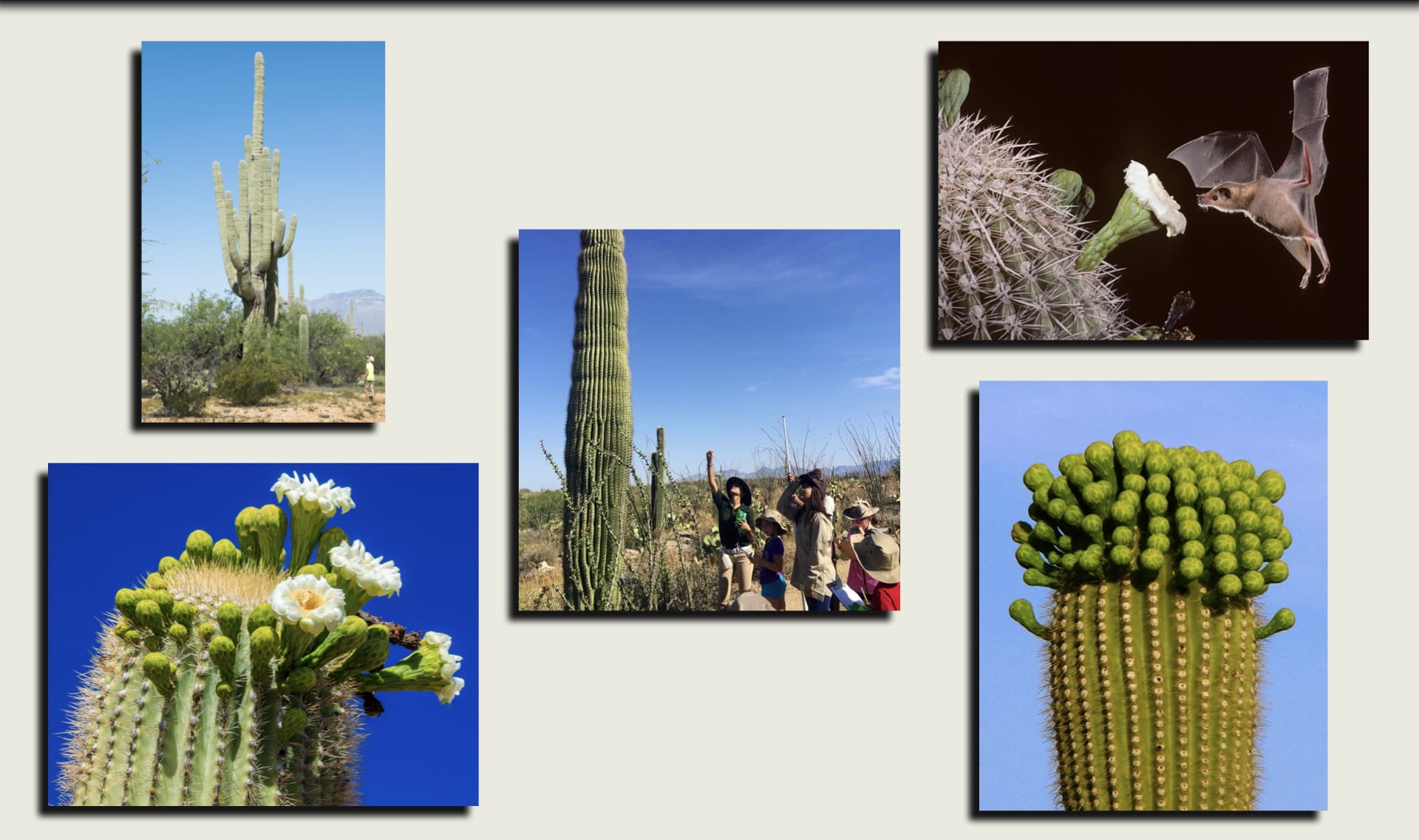
You learned about a few things that happen over and over again. When the same
things happen over and over again, we call it a cycle. Thinking about cycles can help
us understand why these things happen.
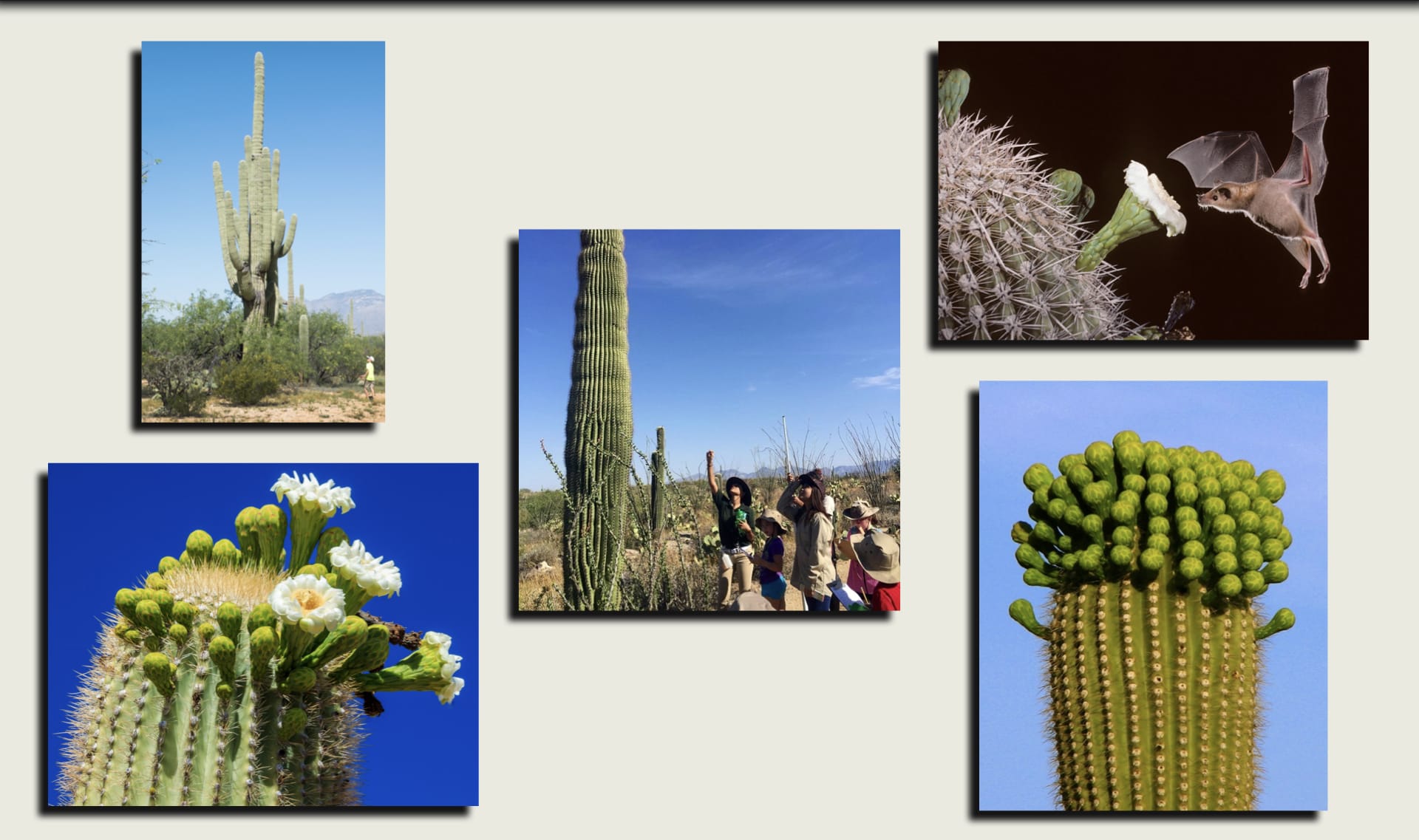
Think-Pair-Share. What is one cycle that you think happens over and over again
with the bats or the saguaros? If you need to, you can go back in this lesson to
look for things that happen over and over again in a cycle.
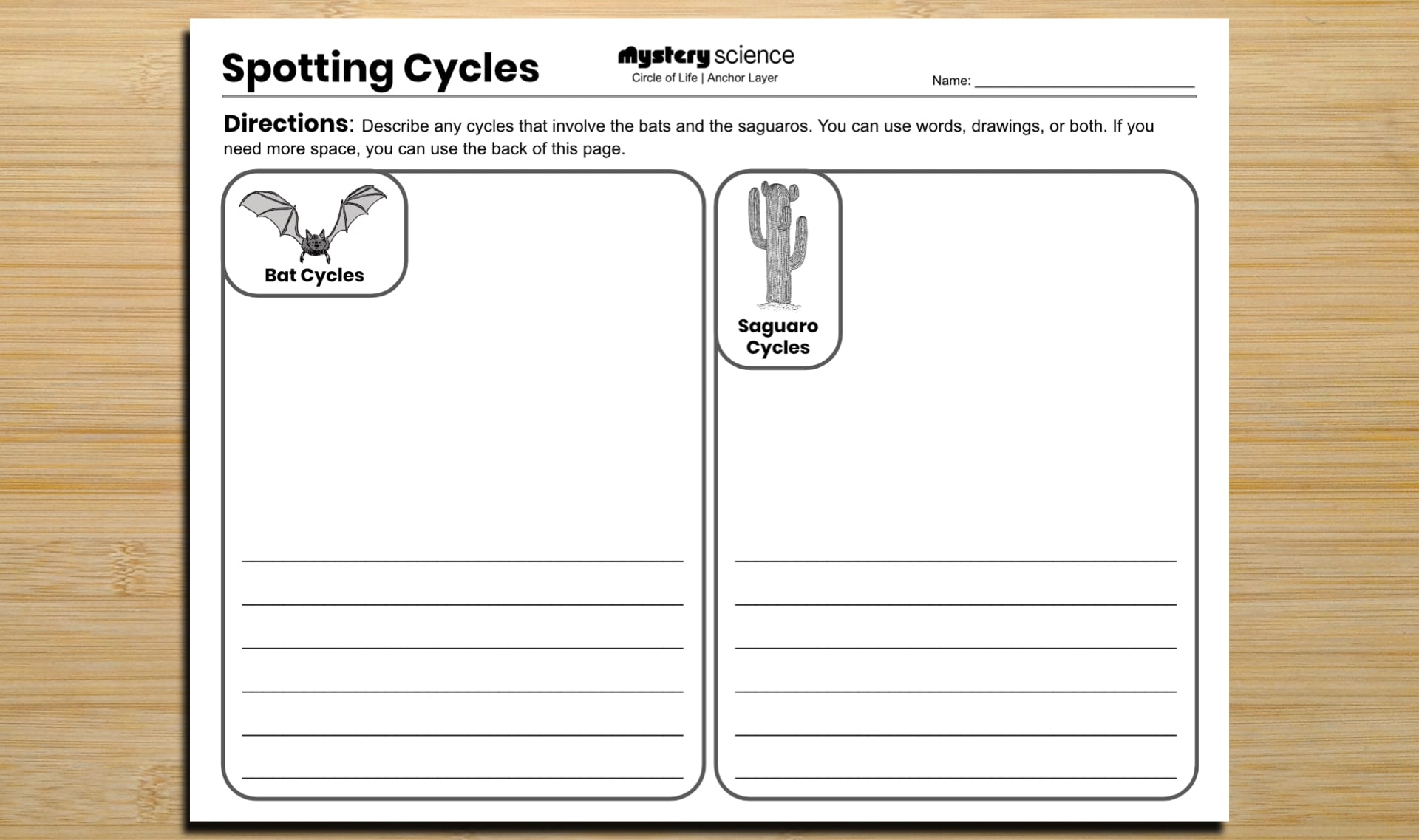
Step
01/04
01/04
On this paper, you will describe any cycles. You have space to draw
and space to write words. Draw or write about any cycles involving
the bats in the box on the left. Draw or write about any cycles
involving the saguaros in the box on the right.
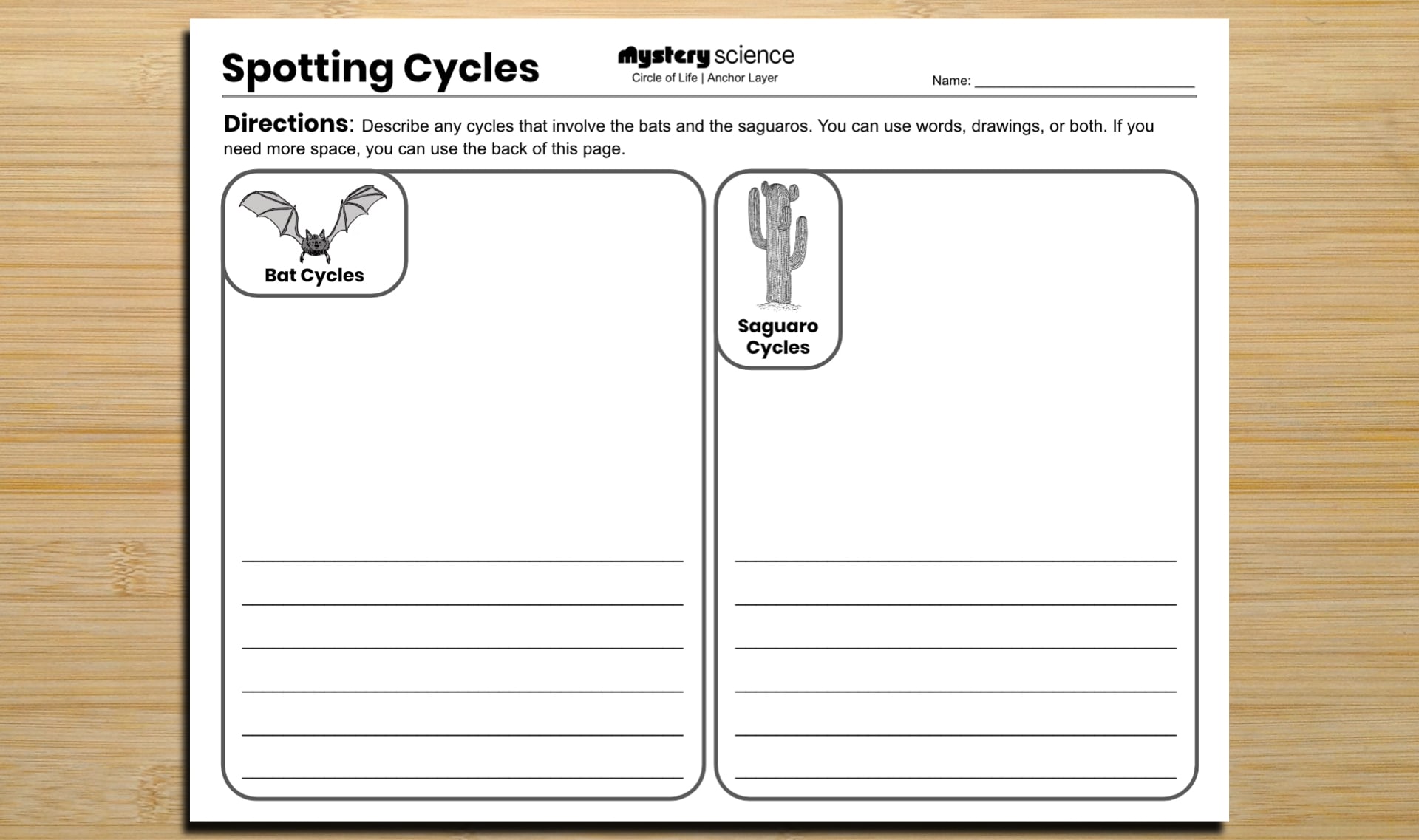
Step
02/04
02/04
You might have seen an entire cycle. Or, you might have only seen
part of a cycle. You can draw or write about both. Thinking about
cycles will help us understand what is going on with the bats and
the saguaros.
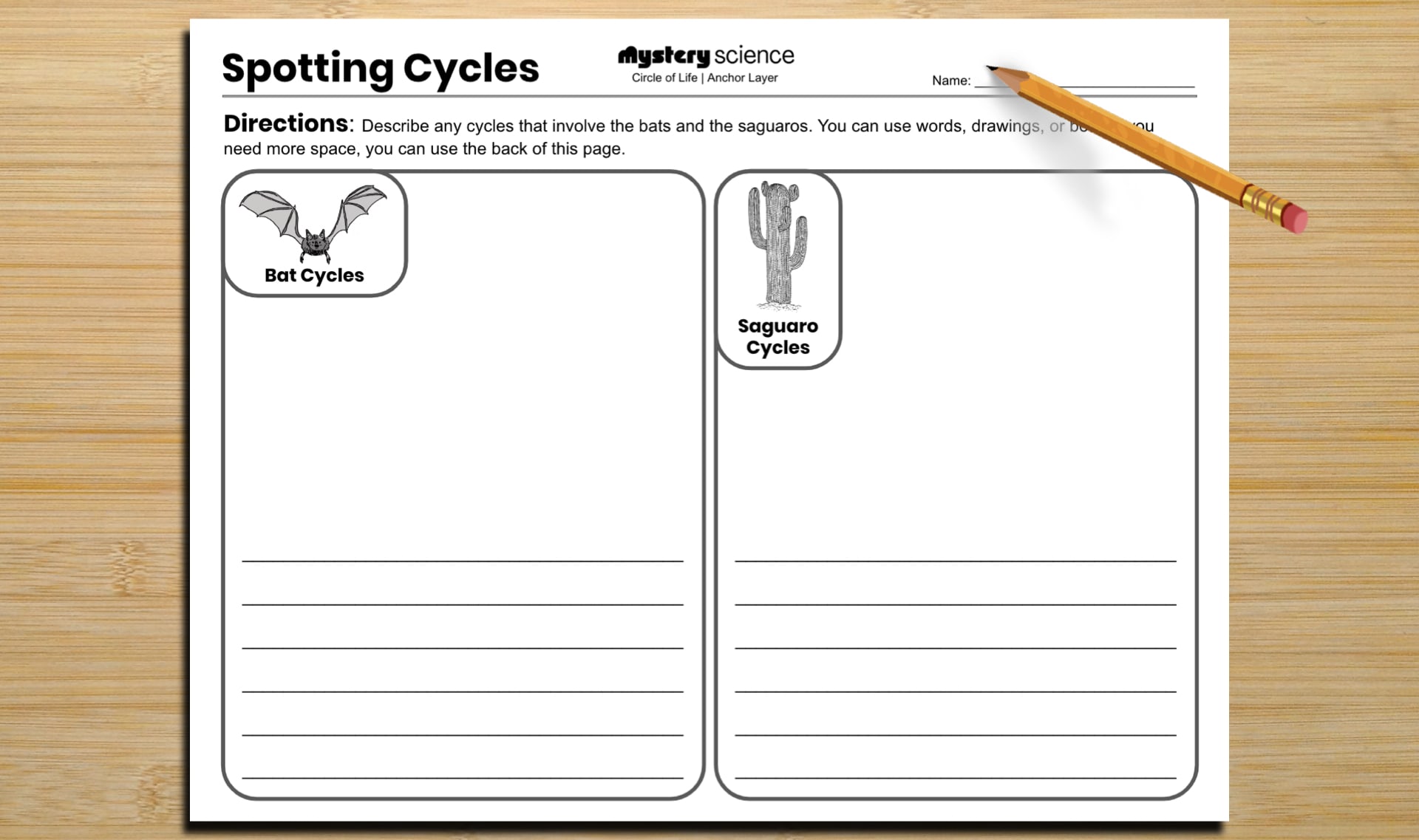
Step
03/04
03/04
Get a Spotting Cycles worksheet and write your name at the top.
Then draw or write about any cycles that you think are happening
with the saguaros or the bats.
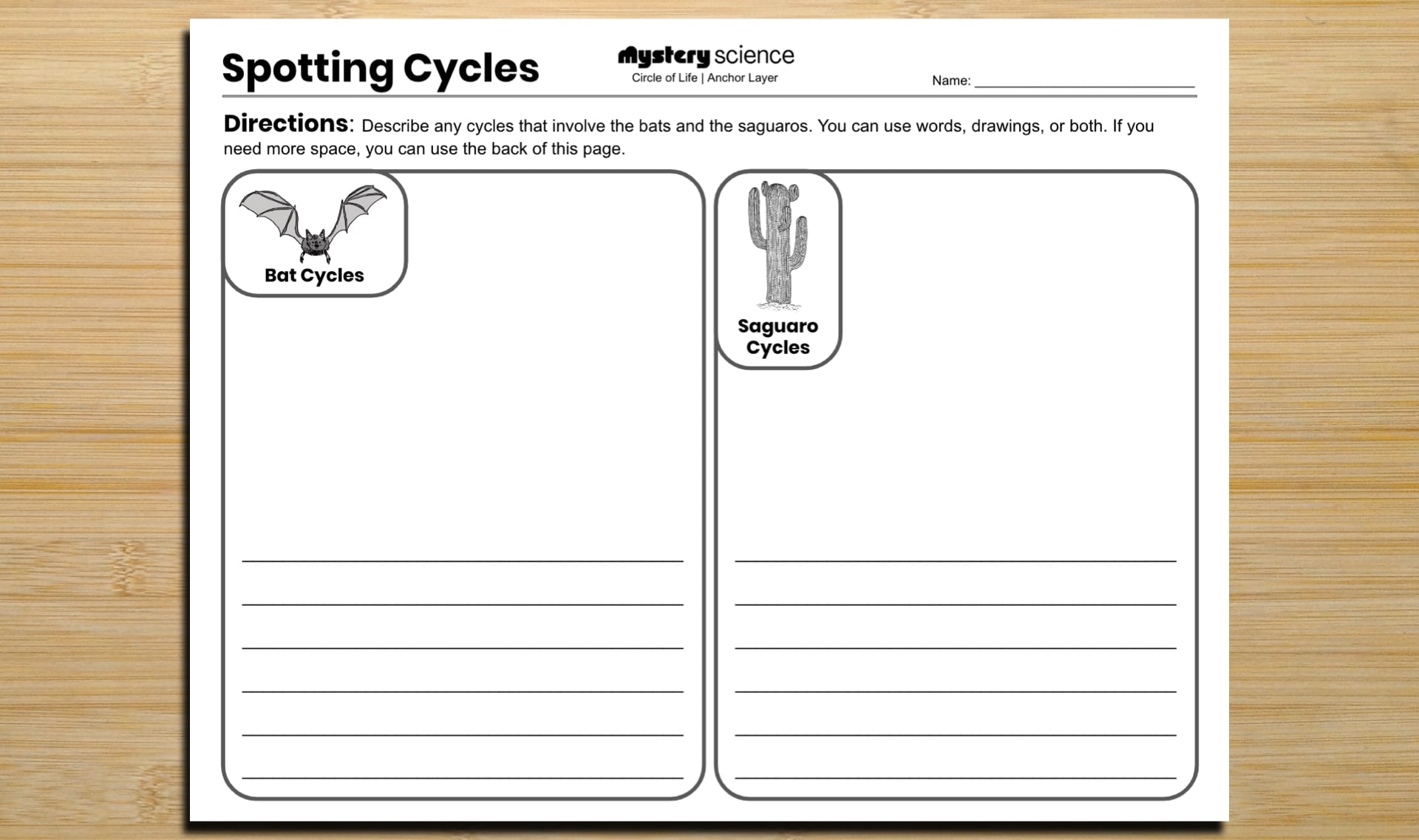
Step
04/04
04/04
Save your Spotting Cycles worksheet. You will update it after each
lesson in this unit!
It's time to do some investigations! In this unit, you'll explore how living things go through different cycles.
At the end of the unit, you will use everything you've learned in a fun project.
Have fun, and stay curious!



